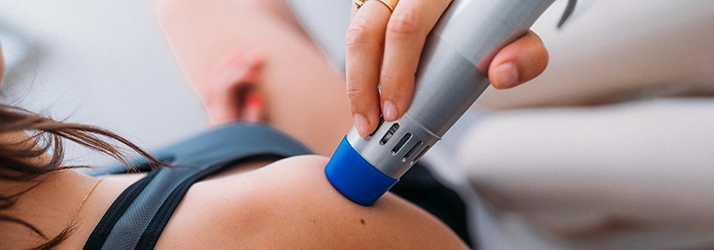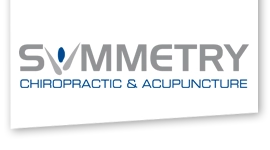SoftWave Therapy For Chronic Pain Relief That Works in Naperville IL
SoftWave Therapy for Chronic Pain Relief That Works in Naperville IL

Living with chronic pain can feel like an unending battle, often filled with frustration, limited mobility, and countless attempts at finding lasting relief. For many, traditional treatments like medications, injections, or surgery come with unwanted side effects or simply don’t offer the results they hope for. Fortunately, a non-invasive and scientifically advanced solution is gaining momentum in the world of pain management—SoftWave therapy. Contact our Naperville IL chiropractic clinic today to learn more.
SoftWave therapy is revolutionizing how chronic pain sufferers manage their symptoms by using advanced shockwave technology to stimulate the body’s natural healing processes. Unlike other therapies that merely mask pain, this treatment aims to resolve the root causes by promoting cellular regeneration and reducing inflammation. With minimal discomfort and no downtime, it's quickly becoming a preferred option for those who want real, lasting relief without invasive procedures.
If you’re living with chronic pain and searching for a proven, non-surgical alternative, this blog will guide you through everything you need to know about SoftWave therapy—how it works, who it’s for, and why it may be the breakthrough you’ve been waiting for.
How SoftWave Therapy Works: The Science Behind the Technology
SoftWave therapy utilizes advanced electrohydraulic shockwave technology to stimulate the body’s natural healing response at a cellular level. The therapy delivers high-energy acoustic waves that penetrate deep into soft tissue without damaging the skin. These waves trigger a biological cascade that encourages tissue regeneration, increases blood flow, and reduces inflammation.
The core mechanism behind SoftWave therapy lies in mechanotransduction, a process by which cells convert mechanical signals into chemical activity. When SoftWave pulses reach damaged or inflamed tissue, they activate dormant stem cells and encourage the release of growth factors. This not only speeds up the body’s ability to repair itself but also provides long-term pain relief without the need for medication or invasive procedures.
What sets SoftWave apart is its non-invasive nature and precision. Unlike surgical interventions or steroid injections that carry risks of infection or side effects, SoftWave therapy is performed externally and has minimal to no downtime. It is also more effective than traditional shockwave therapy due to its broader energy spread and deeper tissue penetration.
For individuals suffering from chronic pain, especially when other treatments have failed, SoftWave therapy offers a promising alternative. By addressing the underlying causes of pain at the cellular level, rather than just masking symptoms, it represents a new frontier in regenerative medicine. Whether dealing with joint pain, tendon injuries, or musculoskeletal inflammation, understanding how SoftWave therapy works can help chronic pain sufferers make more informed, confident decisions about their treatment options.
Conditions That Respond Well to SoftWave Therapy In Naperville IL
SoftWave therapy has shown remarkable effectiveness in treating a variety of conditions that contribute to chronic pain. Its ability to stimulate healing at the cellular level makes it a versatile treatment option for numerous musculoskeletal and soft tissue disorders. For individuals struggling with long-term pain that resists conventional therapies, SoftWave may offer new hope.
This therapy is particularly effective for conditions such as plantar fasciitis, tendonitis, and bursitis, where inflammation and micro-tears are common. SoftWave’s deep tissue stimulation helps reduce swelling and promotes faster recovery. Similarly, patients with joint pain due to osteoarthritis or degenerative disc disease often experience improved function and reduced discomfort after a series of sessions.
Athletes and physically active individuals dealing with repetitive stress injuries—such as tennis elbow, golfer’s elbow, or rotator cuff tendinopathy—also benefit significantly from SoftWave therapy. The treatment aids in breaking down scar tissue and increases circulation in areas that are notoriously slow to heal.
Moreover, people recovering from surgery or injury who have plateaued in their rehabilitation can use SoftWave therapy to accelerate recovery. The therapy enhances neurovascular activity, encouraging the growth of new blood vessels and nerve endings, which are essential for long-term healing and pain relief.
Because SoftWave therapy is non-invasive, it’s suitable for patients who may not be candidates for surgery or who wish to avoid pharmaceutical pain management. Whether the chronic pain stems from overuse, aging, or past trauma, this therapy provides a reliable and effective path toward relief.
Comparing SoftWave Therapy to Traditional Pain Treatments
When it comes to chronic pain management, traditional treatment methods often include medications, physical therapy, steroid injections, and surgery. While these options can offer temporary relief, they frequently fall short in delivering long-term solutions and may come with undesirable side effects or complications. In contrast, SoftWave therapy presents a safe, non-invasive alternative that targets the root causes of pain.
Pain medications, especially opioids, are commonly prescribed but can lead to dependency, tolerance, and a host of other health risks. They also typically mask pain rather than address its source. SoftWave therapy, on the other hand, stimulates natural healing without relying on chemicals or drugs. It promotes blood flow and cellular repair, providing longer-lasting relief.
Steroid injections may reduce inflammation and pain temporarily, but repeated use can weaken tissues and may not be suitable for chronic management. Surgery, while sometimes necessary, involves significant recovery time, expense, and potential complications. Many patients find that even after surgery, pain can persist.
In contrast, SoftWave therapy requires no incisions, has no significant downtime, and involves minimal discomfort. It typically consists of a series of 6 to 8 sessions, each lasting under 30 minutes, making it a convenient option for busy lifestyles. It is also adaptable, treating various conditions without needing different medications or procedures for each one.
For chronic pain sufferers looking for a lasting solution that is both safe and scientifically grounded, SoftWave therapy stands out as a compelling and modern approach to pain relief.
What to Expect During a SoftWave Therapy Session
Understanding what to expect during a SoftWave therapy session can help ease any anxiety and ensure you’re fully prepared to make the most of your treatment. The process is straightforward, comfortable, and designed to fit easily into your daily routine without the need for downtime or recovery.
Here’s what a typical session looks like:
- Initial Evaluation: Your provider will assess your condition, review your medical history, and identify the specific areas causing pain.
- Target Area Preparation: The treatment area is exposed and a conductive gel is applied to enhance the transmission of the acoustic waves.
- SoftWave Application: A hand-held device delivers focused acoustic waves to the painful or damaged tissue. Most patients describe the sensation as a mild tapping or pulsing.
- Adjustments Based on Response: The intensity can be adjusted during the session to ensure your comfort and optimize results.
- Post-Treatment Advice: There's no downtime required. Patients are usually able to resume normal activities immediately, though some may experience mild soreness for a day or two.
Each session typically lasts 15 to 30 minutes, depending on the treatment area. A full treatment plan usually involves one to two sessions per week over several weeks. Many patients begin noticing improvements after just a few sessions, though optimal results often become evident after the full treatment course.
By knowing what to expect, patients with chronic pain can approach SoftWave therapy with confidence and better understand how this innovative treatment fits into their broader pain management strategy.
Benefits of SoftWave Therapy for Chronic Pain Sufferers
SoftWave therapy offers a compelling array of benefits for individuals struggling with chronic pain, particularly when other treatments have failed or delivered only temporary results. Its non-invasive nature and scientifically validated mechanisms make it an attractive alternative to more conventional options.
One of the most significant advantages of SoftWave therapy is its ability to address the root causes of pain rather than merely masking the symptoms. By stimulating blood flow, activating stem cells, and promoting tissue regeneration, the therapy supports long-term healing. This is especially beneficial for those with conditions involving tendon or ligament damage, joint inflammation, or nerve irritation.
Another key benefit is the safety profile. Unlike medications that may carry side effects or surgical interventions that require recovery time, SoftWave therapy has minimal risks and virtually no downtime. Patients can return to normal activities immediately, making it a convenient choice for those with active lifestyles or busy schedules.
SoftWave therapy is also highly adaptable, offering targeted relief across a range of chronic pain conditions—from plantar fasciitis and tennis elbow to arthritis and lower back pain. It can be used as a standalone treatment or integrated with other non-invasive therapies to enhance recovery outcomes.
Furthermore, the therapy has been shown to stimulate the release of nitric oxide, a molecule that helps improve circulation and reduce oxidative stress, contributing to overall tissue health. For chronic pain sufferers seeking a sustainable and natural solution, SoftWave therapy delivers both immediate and lasting relief with far fewer complications.
Who Is a Good Candidate for SoftWave Therapy?
SoftWave therapy is suitable for a wide range of individuals, especially those who are dealing with chronic pain and are seeking alternatives to surgery or long-term medication use. Knowing whether you’re a good candidate for this treatment can help set the stage for better outcomes and a smoother recovery journey.
You may be a good candidate for SoftWave therapy if:
- You suffer from chronic pain related to musculoskeletal conditions like tendonitis, bursitis, or arthritis.
- You’ve tried other treatments such as physical therapy, injections, or medications with little to no success.
- You want a non-invasive option that doesn’t involve surgery or extensive downtime.
- You’re recovering from an injury and want to accelerate the healing process.
- You have overuse injuries from sports, work, or repetitive movements.
- You want to reduce dependence on pain medications, especially opioids or anti-inflammatories.
SoftWave therapy is also ideal for individuals who may not qualify for surgery due to age, medical conditions, or personal preference. It offers a safer, drug-free method of promoting healing and reducing discomfort.
However, it may not be recommended for those with certain medical devices like pacemakers, individuals with blood clotting disorders, or those who are pregnant. A qualified SoftWave provider will conduct a full assessment to determine your suitability and tailor a treatment plan based on your unique needs.
For many chronic pain sufferers, SoftWave therapy provides an effective and life-enhancing alternative to more traditional pain management methods.
Ready to experience real relief from chronic pain? Discover how SoftWave therapy can help you heal naturally and regain your quality of life. Schedule your consultation today with Dr. Timothy Erickson at Symmetry Chiropractic & Acupuncture in Naperville, Illinois, and take the first step toward a pain-free future.
OFFICE HOURS
Monday
9:30am - 12:30pm
3:00pm - 6:00pm
Tuesday
9:30am - 12:30pm
3:00pm - 6:00pm
Wednesday
9:30am - 12:30pm
3:00pm - 6:00pm
Thursday
9:30am - 12:30pm
3:00pm - 6:00pm
Friday
9:30am - 12:30pm
3:00pm - 6:00pm
Saturday
9:30am - 12:30pm
Sunday
Closed
Symmetry Chiropractic & Acupuncture
3108 Illinois Rte 59 Ste 124
Naperville, IL 60564



